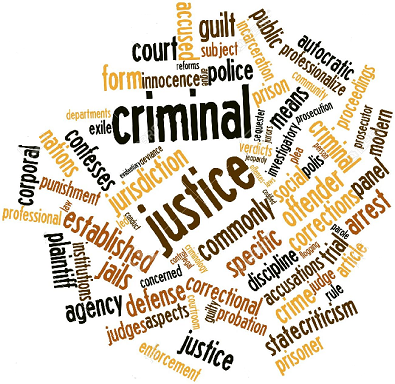Criminal Justice
Brennan Center for Justice at New York University School of Law – is a nonpartisan law and policy institute that seeks to improve our systems of democracy and justice. We work to hold our political institutions and laws accountable to the twin American ideals of democracy and equal justice for all. The Center’s work ranges from voting rights to campaign finance reform, from ending mass incarceration to preserving Constitutional protection in the fight against terrorism. Part think tank, part advocacy group, part cutting-edge communications hub, we start with rigorous research. We craft innovative policies. And we fight for them — in Congress and the states, the courts, and in the court of public opinion, New York, NY and Washington, DC.
Center for Program Evaluation and Performance Measurement – is funded by the Bureau of Justice Assistance to maintain a user-friendly online evaluation and performance measurement tool designed to assist state and local criminal justice planners, practitioners, State Administrative Agencies, researchers, and evaluators in: 1) conducting evaluations and performance measurement that will address the effectiveness and efficiency of their projects, and 2) using evaluation information to improve program planning and implementation, Washington, DC.
Centre for Justice & Reconciliation – is a program of Prison Fellowship International. Its mission is to develop and promote restorative justice in criminal justice systems around the world, Washington, DC.
Constables in Travis County, Texas (video ~ ), Justices of the Peace & Constables Association of Texas – highlights the important role of Constables and the variety of services they provide, including those to domestic violence survivors, Austin, TX.
The Council of State Governments Justice Center – is a national nonprofit organization that serves policymakers at the local, state, and federal levels from all branches of government. Staff provides practical, nonpartisan advice and evidence-based, consensus-driven strategies to increase public safety and strengthen communities. The Justice Center evolved from the Council of State Governments’ Eastern Regional Conference justice program to a national center in 2006, and serves all states to promote effective data-driven practices — particularly in areas in which the criminal justice system intersects with other disciplines, such as public health — to provide practical solutions to public safety and cross-systems problems. The Justice Center builds on a solid foundation of work related to reentry, responses to people with mental illnesses who are involved with the criminal justice system, and justice reinvestment — a data-driven approach to reduce corrections spending and reinvest savings in strategies that can decrease crime and strengthen neighborhoods, Lexington, KY.






